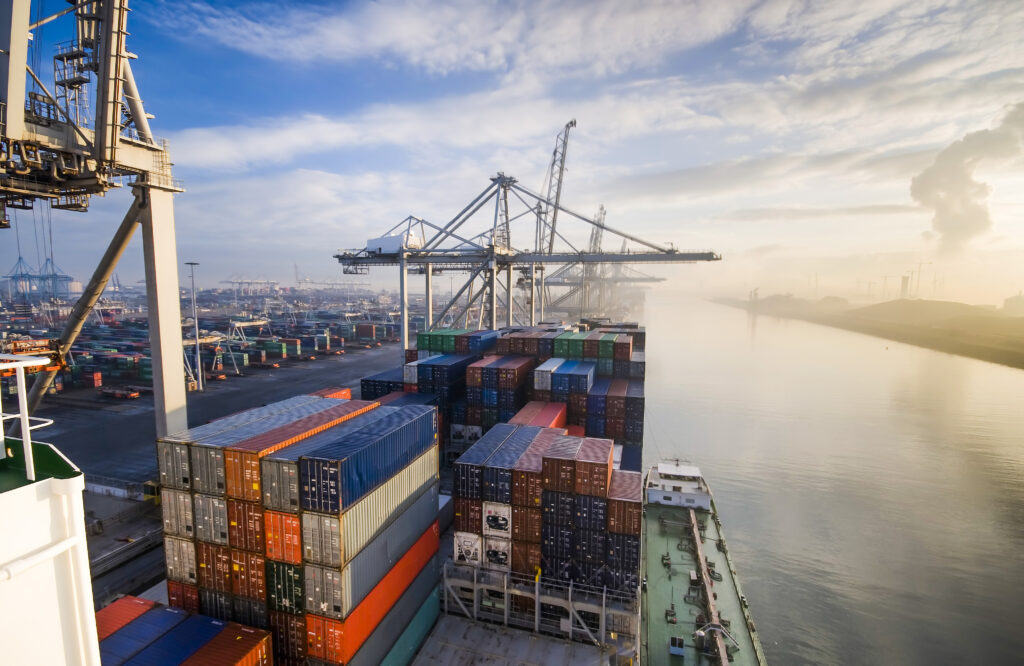Alastair Massey reviews how businesses can navigate ongoing uncertainty caused by tariffs
Navigating tariff uncertainty
Unpacking key considerations for businesses amid the US’ introduction of import tariffs

The recent news agenda has been dominated by President Donald Trump’s decision to implement sweeping tariffs on imports to the US, with the stated aim of revitalising the nation’s manufacturing and reducing its reliance on foreign goods.
The situation remains fluid and is changing from day to day as global markets digest and realign priorities accordingly. However, one thing is clear: the decision has brought with it a renewed sense of uncertainty for businesses in all sectors.
Britain’s exit from the European Union means that its economic relationship with the US has taken on renewed importance in recent years. 2024 saw £314.6 billion of goods and services transacted between the two countries, accounting for 17.7% of total UK trade and making the US it’s largest trading partner.
As such, any measure to restrict this flow of trade will have serious repercussions for UK businesses – especially those reliant on global supply chains, which will also be impacted by tariffs.
Worryingly, this development will only serve to compound existing pressures. UK management teams are already contesting with elevated operating costs, an increased employer tax burden and weak consumer demand, all of which are steadily impacting bottom lines.
With this in mind, it’s key that all businesses – especially those reliant on global supply chains – are remaining reactive to the situation and monitoring for new developments.
Assessing the situation
At the time of writing, there have been some positive developments. The UK recently confirmed that it has reached an agreement to cut tariffs on car and steel exports – one of the first countries to do so.
However, the new minimum 10% tariff rate, which came into effect on Saturday 5 April, still applies to the majority of UK goods being exported to the US. The cost of doing business with the US will still be higher than before.
The full impact of tariffs is yet to be seen, but the short-term impact is evident. Global supply chains have been thrown into disarray, with tariffs leading to increased production costs in key manufacturing countries including China, Vietnam and India. This is prompting suppliers to adjust their production schedules and seek alternative markets, resulting in longer lead times and shipping delays.
The decision has bought with it a renewed sense of uncertainty for businesses in all sectors.

Discussions across our client and partner network indicate that retailers are also particularly feeling the strain, with the seasonality of demand bringing an increased sense of urgency to meet pre-agreed supply deadlines.
This is especially the case for smaller or more luxury fashion brands, many of which operate using specialised supply chains to source specific materials. They now face the dilemma of absorbing increased costs or raising prices – both of which can strain already-thin margins.
Building resilience
In the face of this uncertainty, it’s important that businesses are taking steps to bolster operational resilience to ensure that they’re best placed to deal with further shocks.
As is always the case during times of economic upheaval, planning is key. Developing a detailed 13-week cashflow forecast – which accounts for incomings and outgoings over the next operational quarter – can allow management teams to paint a clear picture of impending financial obligations. This approach helps identify potential liquidity issues early, allowing for timely interventions should various factors, such as more tariff increases or supply chain delays, impact their financial position further.
Businesses should also undertake detailed supply chain due diligence. In the short term, this may entail considering options for new suppliers should existing agreements become unfeasible. And if tariffs do persist, a prudent move would be to consider the feasibility of reshoring, with businesses operating domestic end-to-end supply chains best placed to flourish in the long term.
To this end, maintaining open lines of communication with stakeholders – including suppliers, landlords, and financial institutions – is also essential. Transparent discussions about financial health and operational challenges can lead to collaborative solutions, such as renegotiated payment terms.
In some cases, maintaining positive terms with suppliers could allow importers to delay the transfer of title until goods arrive in the US, helping to temporarily defer tariff payments until conditions are more favourable – although naturally this is dependent on the timelines surrounding a potential UK/US trade deal.
Above all, it’s important that businesses act proactively and quickly. With the situation continuing to evolve on a daily basis, it’s impossible to predict what the global trading landscape will look like in six months’ time.
However, one thing that we can guarantee is that planning ahead and seeking advice before issues become unmanageable will allow businesses to explore a full range of options and implement effective solutions.








